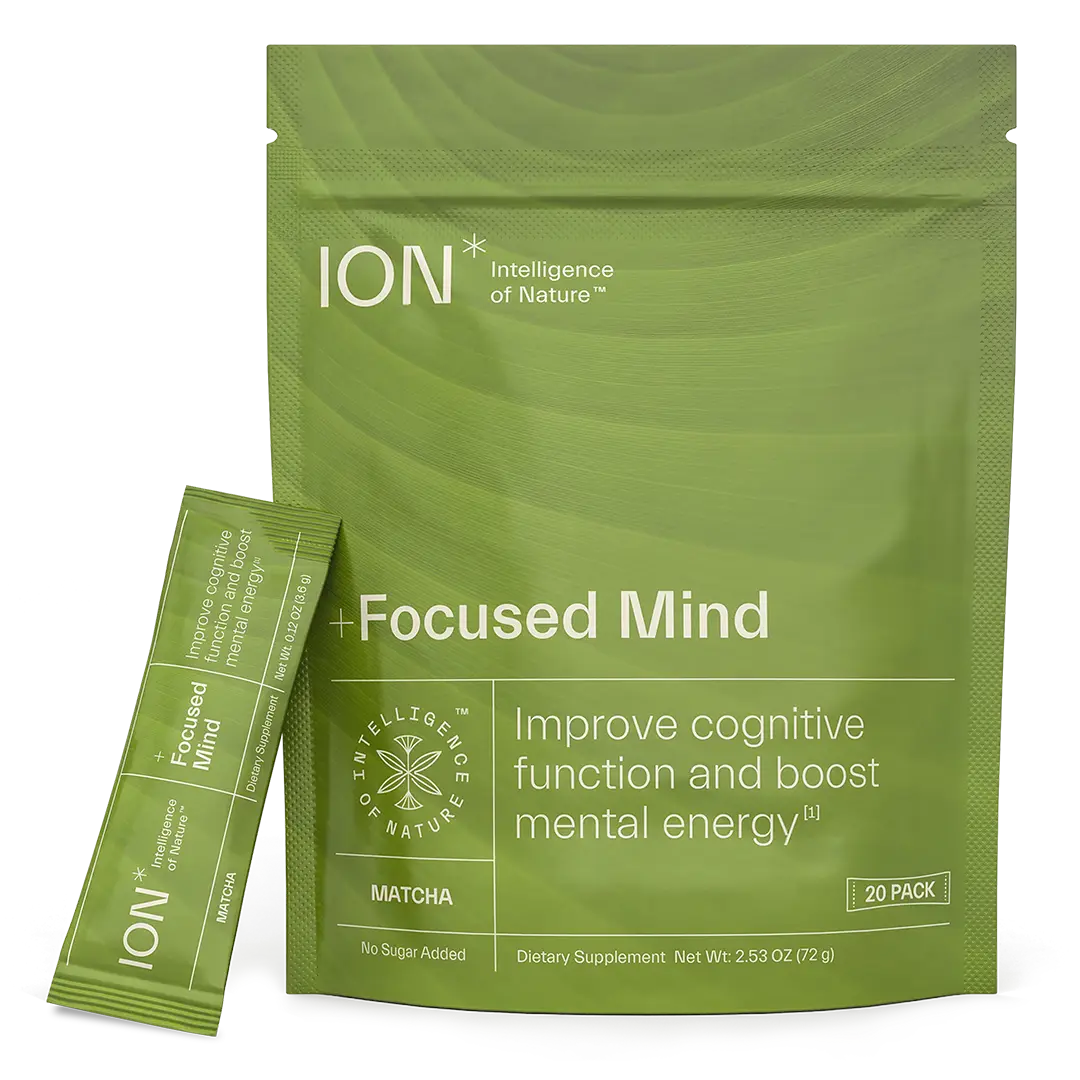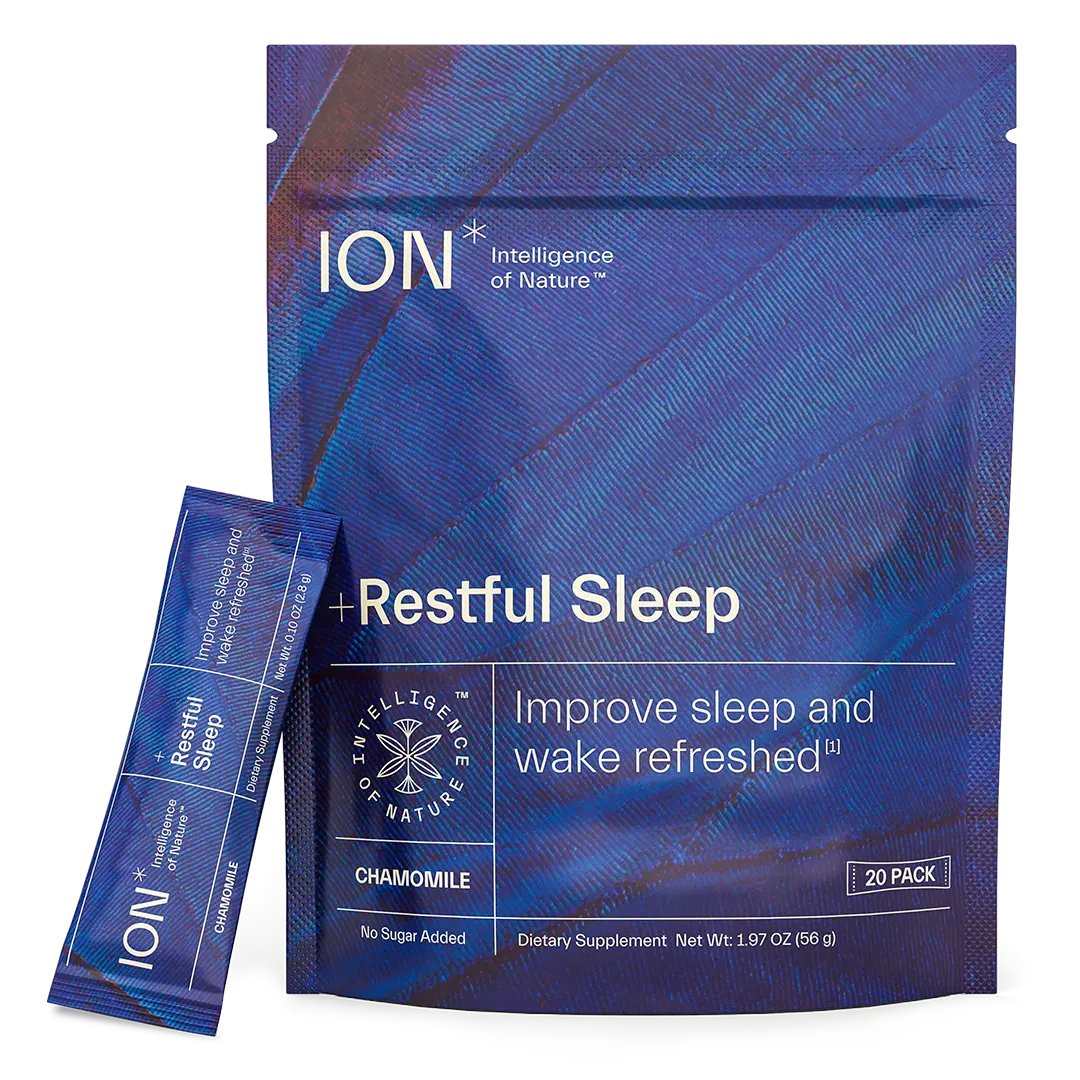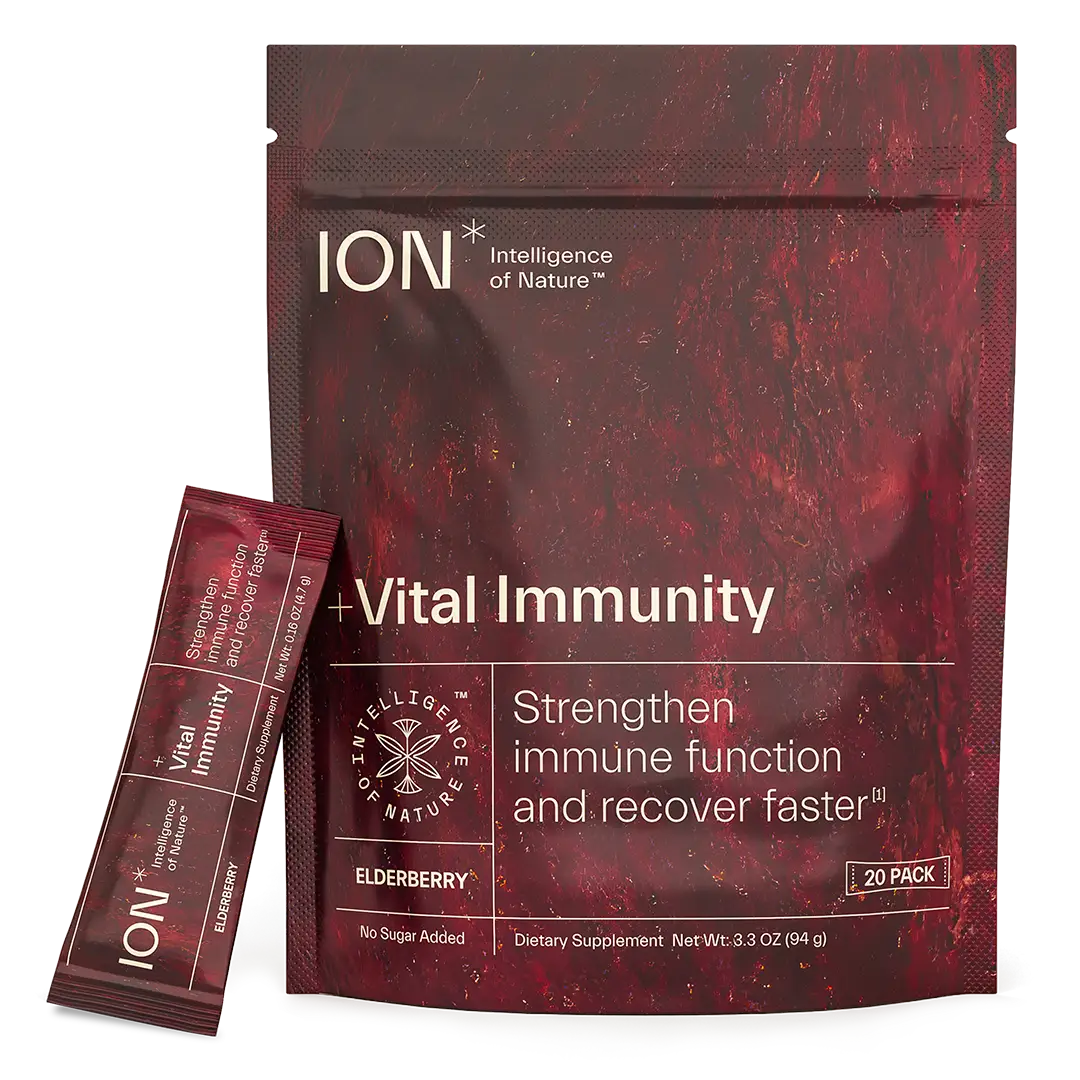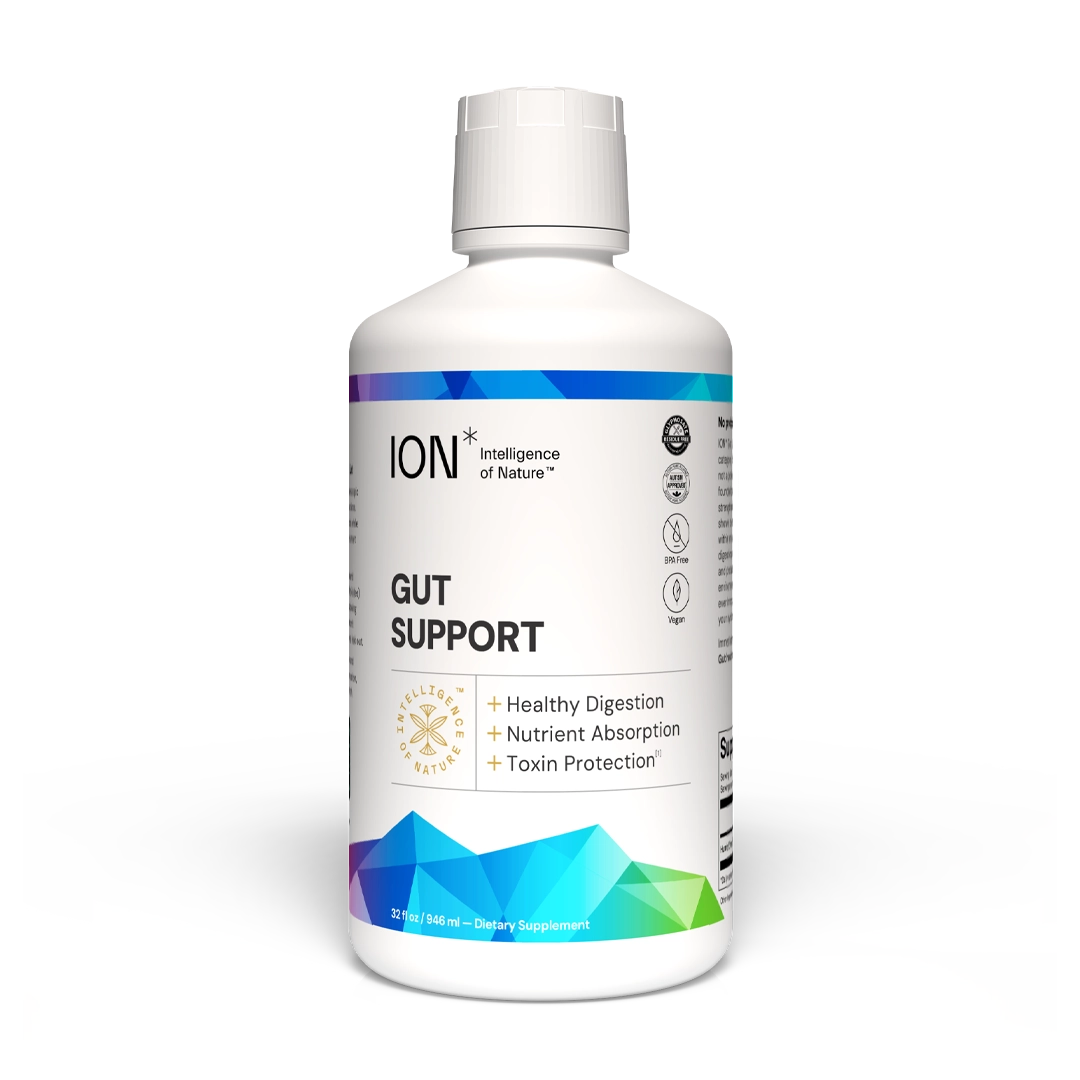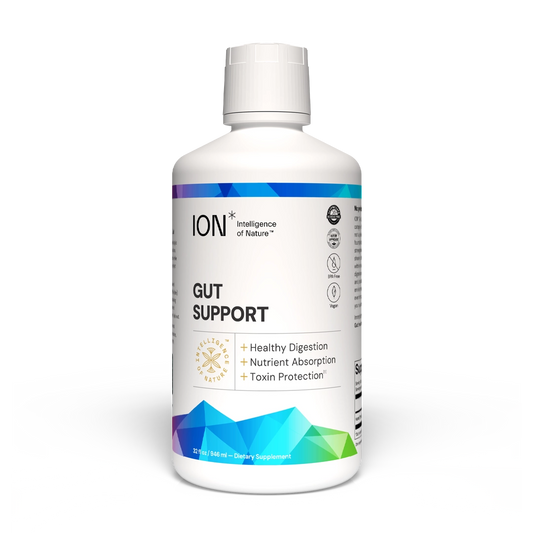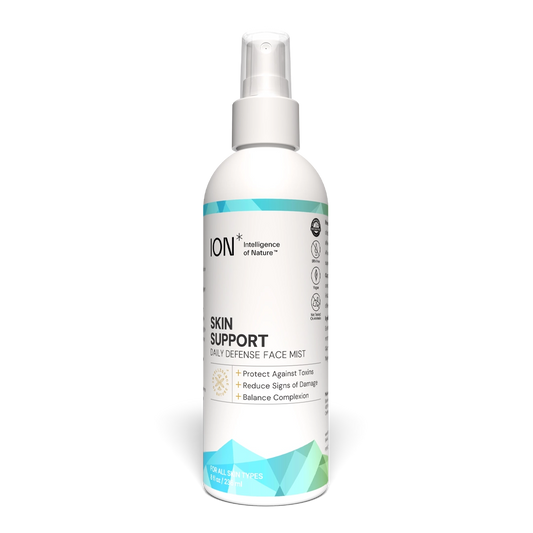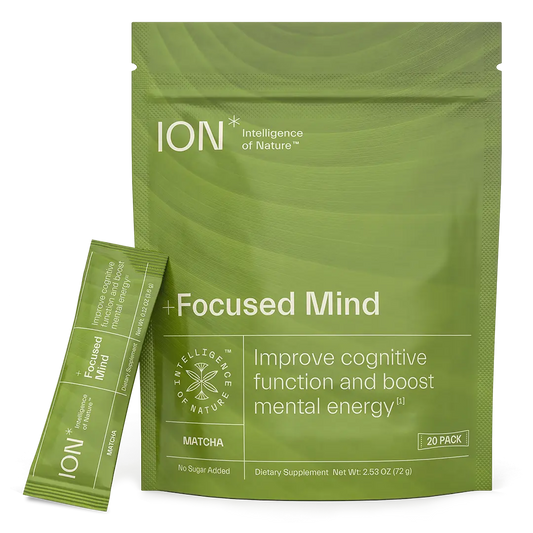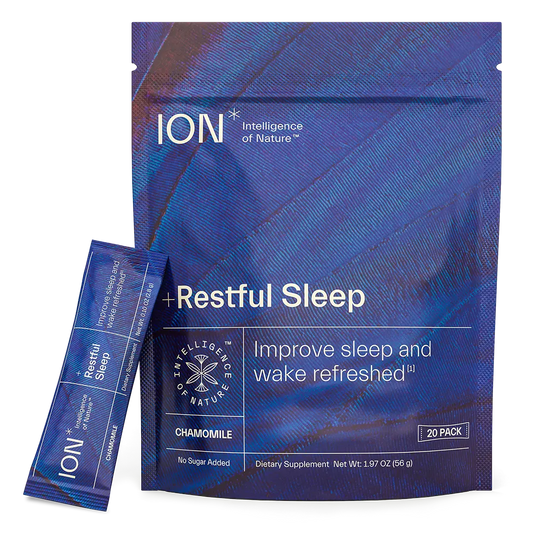Are you one of the 80% of Americans who take supplements1? Or even more likely, are you one of the 2 billion worldwide that suffer from micronutrient deficiency2? You may not realize it, but nutrition is no longer as easy as getting the right fruits, vegetables, and whole grains. And that’s because our produce just doesn’t produce the same nutrient content that it did roughly 80 years ago3. In fact, while many Americans are well-fed, we’re vastly undernourished, and chronic health issues are the result.
We’re digging deep with Dr. Cindy Fallon, VP of Science & Innovation at ION* Intelligence of Nature, and getting A’s to some of the most pressing Q’s on nutrient deficiency, the pitfalls of multivitamins, and ways to keep your body functioning at peak performance.
Q: So, what makes essential nutrients so essential?
A: Well, the term "essential" is really a man-made construct pertaining to an acute need for nutrients and is used to help establish recommended daily intake for six categories of nutrients: fats, proteins, carbohydrates, vitamins, minerals, and water. And while there is an acute need for all six, a spectrum also exists. For instance, water is essential, and our bodies don’t make it. You also can’t last very long without water. This is an acute need, and a deficiency will show itself very quickly.
There is also an acute need for protein and carbohydrates, and though you might last a bit longer without them than without water, you can’t live long without them. Further down the spectrum are vitamins and minerals. A nutritional deficiency will show up fairly quickly (see note on scurvy below).
Vitamin D, one of the nutrients that we are most deficient in, is a central player in holding together epithelial cells in the small intestines, meaning a deficiency can lead to a leaky gut. This can trigger an immune response and inflammation, which can further damage the intestinal lining and worsen leaky gut syndrome.
Additionally, vitamin D deficiency may also lead to an imbalance in the gut microbiome, which can further contribute to the development of a leaky gut.
How micronutrients support your overall health
There are several key ways that vitamins and minerals (aka, micronutrients) are showing up to support your health:
1. Supporting the immune system:
Many vitamins and minerals, such as vitamin C, vitamin D, zinc, and selenium, help support a healthy immune system, which is essential for fighting off infections and diseases. Recall the outbreaks of scurvy on the sailing vessels of the 1800s? These gruesome deaths could have been avoided entirely if they had just brought along some vitamin C packed citrus fruit! What a difference one essential nutrient can make…
2. Regulating metabolism:
Many vitamins and minerals, such as B vitamins and magnesium, are involved in regulating metabolic processes, including energy production, protein synthesis, and DNA repair.
3. Supporting bone health:
Vitamins D, K, and calcium are essential for maintaining strong bones and preventing conditions such as osteoporosis.
4. Acting as antioxidants:
Some vitamins and minerals, such as vitamins C and E, selenium, and zinc, act as antioxidants, which help protect cells from damage caused by free radicals.
5. Supporting brain function:
Many vitamins and minerals, such as B vitamins, iron, and iodine, are essential for proper brain function, including memory, concentration, and mood regulation.
6. Supporting growth and development:
Vitamins and minerals are essential for proper growth and development in children and adolescents and are also important for maintaining healthy tissues and organs throughout life.
Without sufficient intake of vitamins and minerals, nutrient deficiencies can develop, leading to a range of health problems, such as impaired immune function, fatigue, poor bone health, cognitive decline, and anemia.
Further, using the term “essential” around a limited number of nutrients has some important, and possibly detrimental, implications. It implies that all those nutrients that are made by the human body are “non-essential” because we don’t need to consume them. But they are absolutely critical to health, and we need to support the body to make them.
In addition, creating the terms “essential” and “non-essential” for a finite list of nutrients that have an acute impact on health is really misleading and drives over-fixation on consuming a limited number of vitamins and minerals. It completely overlooks a wide range of phytonutrients that are not synthesized by the human body, yet they are essential for optimizing health as well as long-term health.
Another great example is fiber. It’s not considered an essential nutrient because “the absence of a deficiency state prevents it from being considered an essential nutrient…and there is not an estimated average requirement or RDA for fiber”. So, because we haven’t assigned an RDA, it’s not considered essential? Seems a little backward to me.
The health benefits of getting at least 25-30 grams of fiber a day are undisputed and include regulating digestion, avoiding constipation, reducing the risk of diverticulitis and hemorrhoids, regulating blood sugar, lowering the risk of heart disease, not to mention supporting a diverse gut microbiome and all the health benefits that come along with that! Considering fiber as “non-essential” points to a fundamental flaw in the adopted nomenclature.
Q: What are some more examples of “non-essential” but definitely essential nutrients?
A: Phytonutrients are naturally occurring compounds found in plants that have various health benefits. These compounds are not considered essential nutrients, as they are not required for basic bodily functions, but they provide important health benefits, help prevent disease, and are absolutely essential to long-term health.
Phytonutrients are responsible for the vibrant colors, tastes, and smells of fruits and vegetables. Some examples include:
- Carotenoids: Found in bright red, orange, and yellow fruits and vegetables, such as carrots, sweet potatoes, and tomatoes, carotenoids are known for their antioxidant properties.
- Flavonoids: Found in fruits, vegetables, and tea, flavonoids have anti-inflammatory and antioxidant properties and may help reduce the risk of heart disease and certain types of cancer.
- Resveratrol: Found in grapes, red wine, and some berries, resveratrol has been shown to have anti-inflammatory and antioxidant properties, and may help reduce the risk of heart disease.
- Glucosinolates: Found in cruciferous vegetables, such as broccoli, cauliflower, and cabbage, glucosinolates are believed to have anti-cancer properties.
- Phenolic acids: Found in fruits, vegetables, and whole grains, phenolic acids have antioxidant properties and may help reduce the risk of chronic diseases.
Q: So, why are we deficient in so many different kinds of nutrients?
A: There are several reasons why people may be nutrient deficient:
-
Poor diet
Many people consume diets that are high in processed foods, sugar, and unhealthy fats, as well as low in nutrient-rich foods such as fruits, vegetables, whole grains, and lean proteins. This can result in deficiencies in essential vitamins, minerals, and other nutrients. In fact, according to a study published in the journal BMJ Open, in the United States, nearly 60% of the calories consumed by adults come from ultra-processed foods. Ultra-processed are food products that have undergone extensive processing and contain numerous added ingredients, such as flavors, colors, preservatives, and other additives.
A similar study conducted in Canada found that ultra-processed foods accounted for more than half of the calories consumed by Canadian adults. In Europe, a study published in the journal Public Health Nutrition found that ultra-processed foods accounted for more than 50% of the total daily energy intake in the United Kingdom, Germany, and Spain.
Overall, these studies suggest that a significant proportion of the calories consumed in many developed countries come from processed foods, with ultra-processed foods being a major contributor.
Further, the proportion of calories in youths’ diets in 2018 was a staggering 67% ultra-processed, with whole, unprocessed foods only coming in at around 23.5%4.
-
Soil depletion
The quality of our soil has declined in many parts of the world due to intensive farming practices and overuse of pesticides and fertilizers, which can lead to a reduction in the nutrient content of crops grown in these soils.
Further, the use of fertilizers containing nitrogen, phosphorus, and potassium can contribute to shallow roots, which have access to less of the vitamins and minerals in the soil. In nature, certain types of bacteria are able to convert atmospheric nitrogen into ammonia (NH3) through a process called biological nitrogen fixation. This takes place in nodules, deep on the plant's roots and provides the plant with usable nitrogen while the plant provides the bacteria with energy and nutrients. In our attempt to make it “easier” on the plant, we take away the need to drive roots deep enough to support nitrogen fixation and weaken the plant.
Aside from reduced water and nutrient uptake, poor root growth can have several negative impacts on plant health, including decreased resistance to environmental stress and increased susceptibility to disease and pest damage.
-
Food processing
Many processing techniques used in the food industry can reduce the nutrient content of foods, such as refining grains to remove the nutrient-rich bran and germ, or high-heat processing that can destroy vitamins and other nutrients.
-
Medications
Some medications can interfere with nutrient absorption, metabolism, or excretion, leading to deficiencies.
-
Health conditions
Certain health conditions, such as digestive disorders, food allergies, and chronic diseases, can impair nutrient absorption or increase nutrient requirements, leading to deficiencies.
-
Lifestyle factors
Certain lifestyle factors, such as alcohol and tobacco use, can deplete the body of nutrients and increase nutrient requirements.
Q: What are some signs of nutrient deficiency?
A: Generally, different nutrient deficiencies have different signs and symptoms. For example, slow-to-heal wounds and easy bruising can be signs of a vitamin C deficiency while muscle cramps and irregular heartbeat can be signs of calcium deficiency.
While some hair loss and brittle hair can be normal, depending on the rate of loss, it can be a sign of more general nutrient deficiencies. Chronic diarrhea can be a sign of general malabsorption (aka, not getting enough nutrients to the cells). Further, not getting enough nutrients to your cells can decrease energy, affect mood, and cause irritability. Nutrient deficiency can even lead to anxiety or depression. Loss of appetite can also be a sign that you have some nutrient deficiencies.
Some other common signs of nutrient deficiency include:
1. Fatigue and weakness
2. Anemia (pale skin, weakness, shortness of breath, and fatigue)
3. Skin rash or dry, flaky skin
4. Brittle nails
5. Dental problems (such as bleeding gums and tooth decay)
6. Cognitive impairment or memory loss
7. Bloating or constipation
8. Night blindness or vision problems
Please note: Some of these symptoms may be indicative of other health conditions, so it is important to speak with a healthcare provider if you are experiencing any persistent symptoms.
Q: Can supplements like multivitamins and trace minerals help with nutritional deficiencies?
A: Certain supplements can be a helpful way to support nutrient intake and help prevent or treat nutrient deficiencies, but they should not be used as a substitute for a healthy and balanced diet.
While some supplements may provide a concentrated source of specific nutrients that may be difficult to obtain from food alone, they are not a replacement for whole foods, which contain a complex array of nutrients and other beneficial compounds that work together to support health (like the phytonutrients mentioned earlier).
Supplements may also be particularly useful for people with specific nutrient deficiencies (like iron, vitamin D, or Magnesium, for example), health conditions, or dietary restrictions that make it difficult to consume adequate nutrients through diet alone, such as individuals with digestive disorders, or food allergies or intolerances.
However, without an effective way to absorb nutrients, supplements can amount to wasted effort. For instance, if your gut isn’t intact, nutrients aren’t going through the proper pathways to make it where they need to go. Further, a deficiency in humic substances in our soils can also create a “delivery gap” when it comes to nutrients (more on this below).
It is also important to choose high-quality supplements from reputable manufacturers and follow the recommended dosage guidelines, as taking excessive amounts of certain nutrients can be harmful.
Lastly, supplements are not a magic bullet, and should be used in conjunction with a healthy and balanced diet, regular physical activity, and other lifestyle factors that support overall health and well-being.
Q: How does ION* help with nutrient absorption?
A: Humic extract, the active ingredient in ION*, is a naturally occurring compound found in soil and humus, a dark organic material formed from the decomposition of plant and animal matter. It is a complex mixture of organic acids, minerals, and other beneficial compounds that have been shown to have a range of health benefits, including supporting nutrient absorption.
Humic extract has a unique molecular structure that allows it to bind to minerals, such as iron, zinc, and magnesium, making them more easily absorbed by the body. Additionally, humic extract can enhance the permeability of cell membranes, allowing for better absorption of nutrients and other compounds.
Humic extract can also help to activate enzymes that are involved in the breakdown and absorption of nutrients in the body. This can help to increase the efficiency of nutrient absorption.
And beyond getting nutrients into cells, humic extract can bind to toxins in the body and help to remove them from cells, facilitating a gentle cellular detox.
For ION* in particular, we have seen an increase in curcumin bioavailability specifically, with more science on the horizon for showcasing the unique abilities of this carrier molecule.
 Preliminary data highlighting the ability of ION* to absorb curcumin as measured in urine four hours after ingestion. The first bar shows curcumin in water alone, the second fully dissolved in ION*, and the third taken with ION* but not dissolved.
Preliminary data highlighting the ability of ION* to absorb curcumin as measured in urine four hours after ingestion. The first bar shows curcumin in water alone, the second fully dissolved in ION*, and the third taken with ION* but not dissolved.
One of the amazing attributes of humic extract is that the molecules are large enough that they can fold and encapsulate in order to carry nutrients across membranes and into cells. They have hydrophobic (water-hating) and hydrophilic (water-loving) sites that are super facile and will interface with the nutrient to be carried, delivering it as nature intended.
While ION* is not considered to be a nutrient, and you can’t simply measure your humic extract levels, humic extract is absolutely essential to the process of nutrient delivery. Once upon a time, humans got plenty of humic extract when they ate nutrient-dense plants grown in microbe-rich soil. However, not only has the soil become less rich with nutrients, the humic extract “delivery service” has been jeopardized.
Q: How does nutrient absorption facilitate cell health?
A: By getting nutrients to where they are actually needed, the cell, metabolism, and protein synthesis can be fostered.
Nutrient absorption plays a crucial role in facilitating cell health because nutrients are the building blocks that our cells use to carry out their functions and maintain their structure. Different types of cells in our body require different nutrients to function properly, and deficiencies can lead to a range of cellular abnormalities and dysfunction.
For example, our cells require energy in the form of glucose and other nutrients to carry out their metabolic processes, produce ATP, and support cellular respiration. Cells also require amino acids and other nutrients to build proteins, which are essential for many cellular processes, including growth, repair, and signaling.
Additionally, certain vitamins and minerals, such as vitamin C, vitamin E, and selenium, function as antioxidants, helping to protect our cells from oxidative damage caused by free radicals.
In order for our cells to have access to these nutrients, they must first be absorbed into the bloodstream from the food we eat or supplements we take. As mentioned earlier, humic extract can help to activate enzymes that are involved in the breakdown and absorption of nutrients in the body. This nutrient absorption occurs primarily in the small intestine, where nutrients are transported across the intestinal lining and into the bloodstream, where they can then be transported to the cells that need them.
Q: How does nutrient absorption help with overall health?
A: Proper nutrient absorption can help with everything from energy production to protein synthesis, and brain health to mood regulation.
Nutrient absorption plays a crucial role in facilitating overall health because it ensures that our bodies have access to the essential nutrients that they need to function properly. Nutrients are required for a wide range of bodily processes, including energy production, immune function, cellular repair and growth, and cognitive function, among others.
When nutrient absorption is impaired or inadequate, it can lead to a range of health problems, including deficiencies, malnutrition, and other health complications. For example, deficiencies in certain nutrients, such as iron, vitamin B12, and vitamin D, can lead to anemia, fatigue, and bone loss, respectively. Malnutrition can also weaken the immune system, leading to an increased risk of infections and other illnesses.
On the other hand, consuming a diet that is rich in a variety of nutrients, and optimizing nutrient absorption, can help to support overall health and reduce the risk of many chronic diseases. For example, a diet that is high in fruits, vegetables, whole grains, and lean proteins can support cardiovascular health, cognitive function, immune function, and more.
Q: What are the critical steps to maintaining proper nutrition?
Just think MESS…as in Latin for “a course of a meal”.
- Measure: While lab tests won’t tell you how you’re doing on phytonutrients or humic extract, you can get a clear measure of vitamin levels like iron, vitamin D, and calcium.
- Eat: Consume as many nutrient-rich, humic extract-rich plants as possible. The more diverse the better! Buy produce from no-spray, regenerative farms that have had minimal inputs, as much as possible (know your farmer, or better yet, grow a few edible plants of your own!)
- Supplement: Use supplements in a targeted way as needed. Typical deficiencies are in B12 and vitamin D which can be readily adjusted.
- Support: Strengthen and nurture your gut with ION* Gut Support. A leaky gut is not efficient or effective at pulling out nutrients from food. Any and everything gets into the body, eliciting an autoimmune response. ION* can also help carry those precious nutrients - the essential, the non-essential, and those healthful phytonutrients - to where they are needed most: your cells!

ION* Intelligence of Nature VP of Science and Innovation, Cindy Fallon Cindy Fallon, PhD, left a 27-year career after discovering that the chemical industry she helped to grow and promote was at the root of her own debilitating health collapse. She has since sought to share her experience and educate on the importance of microbiome health and all-natural solutions to some of our most far-reaching health problems. Cindy earned her PhD in Organic Chemistry from the University of North Carolina, Chapel Hill and her Bachelor of Science in Chemistry from James Madison University, and currently serves as VP of Science and Operational Planning for Seraphic Group (parent company to ION* Intelligence of Nature).
References:
- https://www.nutraingredients-usa.com/Article/2021/10/22/CRN-survey-80-of-Americans-are-now-using-dietary-supplements#
- https://ourworldindata.org/micronutrient-deficiency
- https://pubmed.ncbi.nlm.nih.gov/15637215/
- https://www.nih.gov/news-events/nih-research-matters/highly-processed-foods-form-bulk-us-youths-diets
